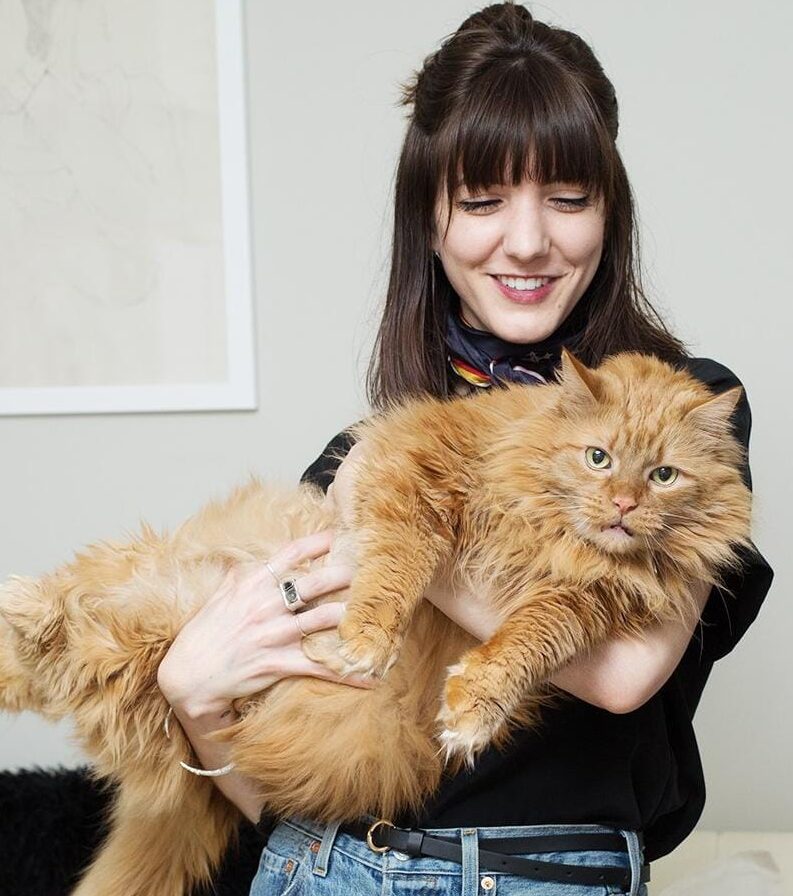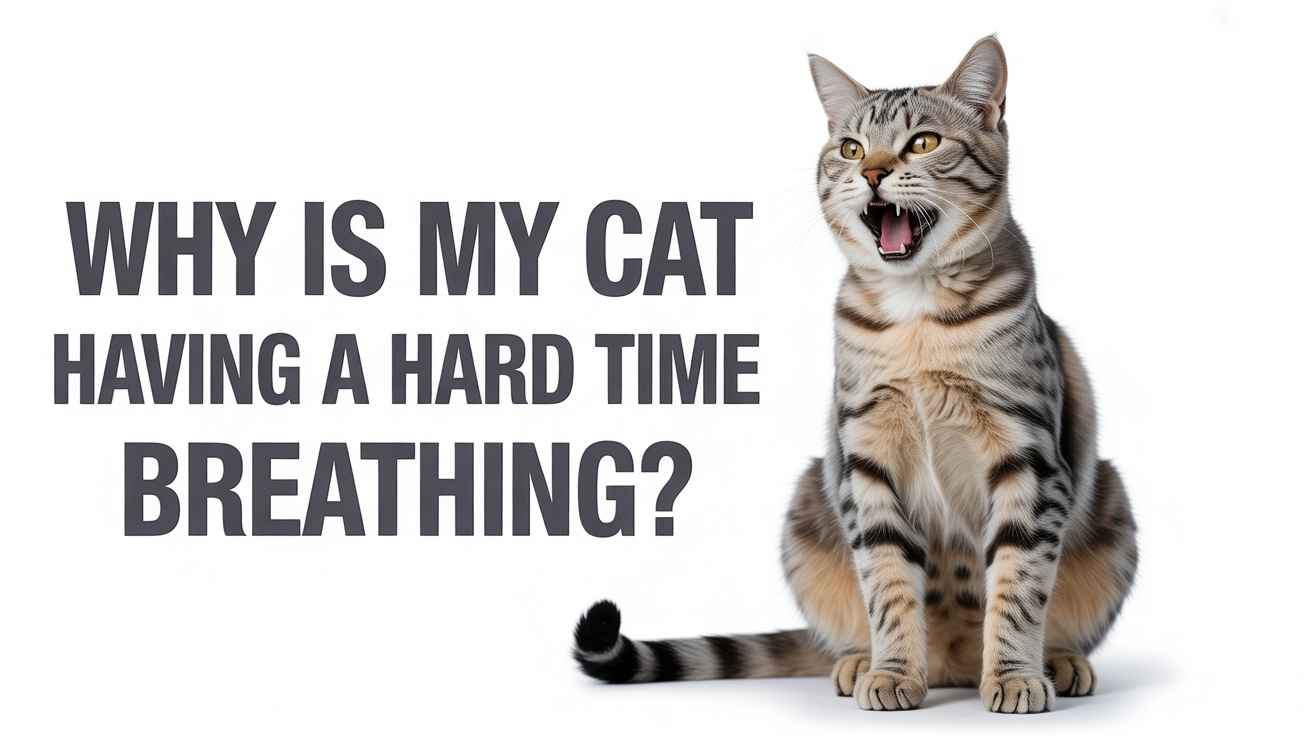Why My Cat Is Not Losing Weight? Common reasons are hormonal imbalance, inactivity, overfeeding, gut issues, or underlying illness.
Why Is My Cat Not Losing Weight?
If your cat isn’t losing weight, diet alone may not be the issue. Overfeeding, high-calorie food, and extra treats are common culprits. Indoor cats also burn fewer calories due to limited activity.
Stress and underlying health conditions—such as thyroid problems or diabetes—can further complicate weight loss. A veterinary checkup is essential before making any changes to your diet or exercise regimen. With the proper guidance, gradual and healthy weight loss is possible.
Week Cat Weight Loss Plan
| Week | Feeding | Exercise | Monitoring |
|---|---|---|---|
| 5 week | Keep structured meal portions, no free-feeding | Play 10 min, twice daily | Weekly weigh-in |
| 6 week | If no progress, slightly reduce calories (vet advice) | Increase play to 12–15 min twice daily | Track weight change |
| 7 week | Add variety—new toys or puzzle feeders | Maintain 12–15 min active play | Ensure safe loss (0.5–2% body weight) |
| 8 week | Stick to routine, consistent portions | Rotate activities to avoid boredom | Review the log with the vet if stalled |
8 Non-Medical Reasons Why Your Cat Is Not Losing Weight
- Free-feeding – Leaving food out all day makes calorie control difficult.
- Guessing portions – Without measuring, extra calories sneak in.
- Treats and table scraps– even in small amounts- can hinder weight loss progress
- Wrong food choice – High-calorie formulas not meant for overweight cats make it more complicated.
- Lack of activity – Indoor cats burn fewer calories.
- Stress eating – Anxiety or household changes can trigger overeating.
- Boredom – Without stimulation, cats may snack just to pass the time.
- Unrealistic expectations – Weight loss in cats is a gradual process that requires patience and persistence.
7 Medical Conditions That Block Weight Loss
| Condition | How It Affects Weight | Key Note |
|---|---|---|
| Hyperthyroidism | Speeds up metabolism, causing weight changes despite eating | Needs blood tests for diagnosis |
| Diabetes Mellitus | Disrupts how the body uses sugar, leading to weight issues | May require insulin + diet change |
| Kidney Disease | Affects appetite and nutrient balance | Often linked with weight loss + muscle loss |
| Digestive Disorders | Poor absorption of nutrients prevents a healthy weight | Includes IBD or food sensitivities |
| Parasites | Worms steal calories and nutrients | A faecal test needed for confirmation |
| Cushing’s Disease | Hormonal imbalance alters fat storage | Rare but possible in cats |
| Chronic Pain / Tumors | Reduces activity, appetite, or nutrient use | Needs veterinary imaging/tests |
Vet-Approved Weight Loss Plan for Cats
If you’ve wondered, “Why isn’t my cat losing weight?” the safest solution is a structured plan guided by your veterinarian. A vet will calculate your cat’s calorie needs, suggest a weight loss plan for cats with balanced nutrition, and set realistic weekly goals.
Instead of sudden food cuts, they’ll recommend portion control, scheduled meals, and possibly a prescription diet. This steady approach helps prevent risks like hepatic lipidosis and allows overweight cats to slim down safely and effectively. With patience and consistency, real progress becomes achievable and lasting.
Feeding & Portion Strategies That Work
| Strategy | Why It Helps | How to Apply |
|---|---|---|
| Use a digital scale | More accurate than cups, prevents overfeeding | Weigh each meal in grams instead of scooping |
| Scheduled meals | Controls calorie intake, stops grazing | Feed 2–3 set meals daily no free-feeding |
| Puzzle feeders/slow bowls | Slows eating, adds mental + physical activity | Use feeders that require pawing, rolling, or problem-solving |
| Limit treats | Treats add hidden calories | Keep treats <10% of daily intake, or swap with low calorie snacks |
| Healthy swaps | Keeps cats satisfied without excess calories | Offer plain cooked chicken bites or vet approved low calorie treats |
Exercise & Enrichment to Help Cats Lose Weight
Diet alone often isn’t enough when you’re asking, Why is my cat not losing weight? Cats, especially indoor ones, need daily activity to burn calories. Short play sessions with wand toys, laser pointers, or chase games mimic natural hunting.
Puzzle feeders add both mental stimulation and movement. Building vertical spaces, like cat trees or shelves, encourages climbing and exploration. Even a few minutes of structured play twice a day can help support indoor cat weight loss. Small lifestyle changes can create lasting improvements in feline weight management.

Monitoring Progress & Adjustments
If you’re still wondering why my cat is not losing weight, tracking results is key. Weekly weigh-ins, either at home or at the veterinarian’s office, help determine whether the plan is working.
Maintain a straightforward log to track your food portions, treats, and physical activity.If weight loss stalls for more than a month, your vet may adjust calories or switch to a prescription cat diet plan.
Progress should be gradual, at approximately 0.5–2% of body weight per week. Careful monitoring keeps the process safe and ensures your cat’s weight loss journey stays on track.
Urgent Red Flags — When to Call the Vet
Sometimes the question isn’t just why my cat is not losing weight, but whether something more serious is happening.
Contact your vet right away if your cat suddenly stops eating, vomits frequently, shows yellowing of the eyes or gums, drinks or urinates excessively, or seems weak and lethargic. These signs may point to conditions like diabetes, liver disease, or other urgent problems.
Don’t delay—quick veterinary care can make the difference between a simple diet adjustment and a life-threatening emergency.
FAQs
Q1: Why is my cat not losing weight even on a diet?
Hidden calories, the wrong food type, or a medical issue like diabetes may be to blame.
Q2: What is a safe weight loss rate for cats?
About 0.5–2% of body weight per week is ideal.
Q3: Can indoor cats lose weight?
Yes—structured play, puzzle feeders, and portion control support indoor cat weight loss.
Q4: What food helps cats lose weight?
Vet-prescribed, high-protein, portion-controlled diets work best.

Hi, I’m Sana Sajid!I’m the voice behind CatsCare.blog, sharing my 10+ years of hands-on cat care experience. With a diploma in animal care, I offer practical tips, trusted advice, and easy-to-follow guides to help keep your cats healthy and happy.
When I’m not writing, I spend time with my own cats or exploring the latest developments in feline health. Follow CatsCare.blog for expert insights and real cat stories!


![A person's hand is using a slicker brush to groom a short-haired gray cat lying on a wooden floor, with a large pile of shed fur next to the cat. [Why is my Cat shedding in winter]](https://catscare.blog/wp-content/uploads/2025/11/Why-Is-My-Cat-Shedding-in-Winter-.jpg)
![A close-up portrait of a calico cat (black, white, and orange markings) looking upwards with its mouth slightly open, showing its teeth and some dark pigmentation on its gums and lips. [Why are my Cat’s Gums Black]](https://catscare.blog/wp-content/uploads/2025/11/Why-are-my-Cats-Gums-Black.jpg)
![A person petting a tabby cat whose ears are backlit by a window, illustrating why an [Indoor Cat’s ears Hot] might just be due to sunlight.](https://catscare.blog/wp-content/uploads/2025/12/Indoor-Cats-ears-Hot.jpg)

6 thoughts on “Why My Cat Is Not Losing Weight? 8 Reasons”